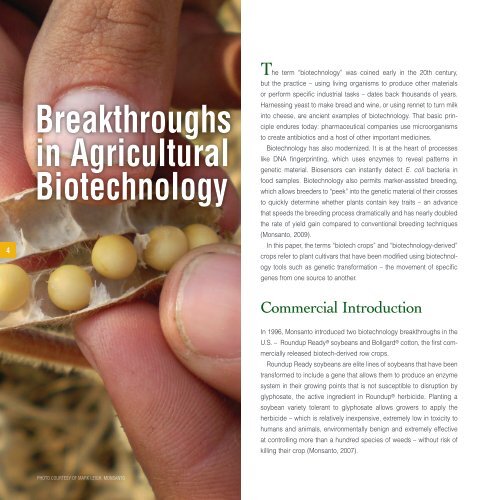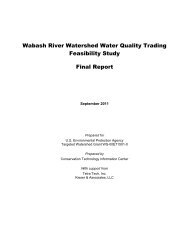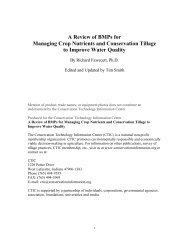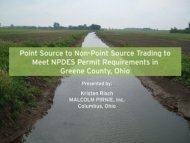Facilitating Conservation Farming Practices and Enhancing ...
Facilitating Conservation Farming Practices and Enhancing ...
Facilitating Conservation Farming Practices and Enhancing ...
You also want an ePaper? Increase the reach of your titles
YUMPU automatically turns print PDFs into web optimized ePapers that Google loves.
4<br />
Breakthroughs<br />
in Agricultural<br />
Biotechnology<br />
The term “biotechnology” was coined early in the 20th century,<br />
but the practice – using living organisms to produce other materials<br />
or perform specific industrial tasks – dates back thous<strong>and</strong>s of years.<br />
Harnessing yeast to make bread <strong>and</strong> wine, or using rennet to turn milk<br />
into cheese, are ancient examples of biotechnology. That basic principle<br />
endures today: pharmaceutical companies use microorganisms<br />
to create antibiotics <strong>and</strong> a host of other important medicines.<br />
Biotechnology has also modernized. It is at the heart of processes<br />
like DNA fingerprinting, which uses enzymes to reveal patterns in<br />
genetic material. Biosensors can instantly detect E. coli bacteria in<br />
food samples. Biotechnology also permits marker-assisted breeding,<br />
which allows breeders to “peek” into the genetic material of their crosses<br />
to quickly determine whether plants contain key traits – an advance<br />
that speeds the breeding process dramatically <strong>and</strong> has nearly doubled<br />
the rate of yield gain compared to conventional breeding techniques<br />
(Monsanto, 2009).<br />
In this paper, the terms “biotech crops” <strong>and</strong> “biotechnology-derived”<br />
crops refer to plant cultivars that have been modified using biotechnology<br />
tools such as genetic transformation – the movement of specific<br />
genes from one source to another.<br />
Commercial Introduction<br />
In 1996, Monsanto introduced two biotechnology breakthroughs in the<br />
U.S. – Roundup Ready ® soybeans <strong>and</strong> Bollgard ® cotton, the first commercially<br />
released biotech-derived row crops.<br />
Roundup Ready soybeans are elite lines of soybeans that have been<br />
transformed to include a gene that allows them to produce an enzyme<br />
system in their growing points that is not susceptible to disruption by<br />
glyphosate, the active ingredient in Roundup ® herbicide. Planting a<br />
soybean variety tolerant to glyphosate allows growers to apply the<br />
herbicide – which is relatively inexpensive, extremely low in toxicity to<br />
humans <strong>and</strong> animals, environmentally benign <strong>and</strong> extremely effective<br />
at controlling more than a hundred species of weeds – without risk of<br />
killing their crop (Monsanto, 2007).<br />
Photo courtesy of Mark Leigh, Monsanto








